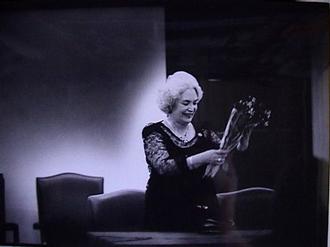15 June 2010
General Assembly
GA/COL/3208
Department of Public Information • News and Media Division • New York
Special Committee on Decolonization
4th Meeting (AM)
RESUMING 2010 SESSION, SPECIAL COMMITTEE ON DECOLONIZATION APPROVES REQUESTS FOR HEARINGS BY NON-SELF-GOVERNING TERRITORIES, TAKES UP QUESTION OF GIBRALTAR
Resuming its 2010 session this morning, the Special Committee on Decolonization approved requests for hearings from several Non-Self-Governing Territories in the coming days, with a petitioner from Gibraltar asserting that 50 years after the General Assembly had passed its historic resolution 1514 (XV), which called for the immediate transfer of power from all colonized Territories to their peoples, an assessment of the overall decolonization process was needed.
Spotlighting one of the main items on the Special Committee’s agenda — the question of Gibraltar — that call was made by Joseph John Bossano, leader of the Opposition in the Non-Self-Governing Territory of Gibraltar, in his impassioned rejection of the representative of Spain’s argument that under the Utrecht Treaty of 1713, Gibraltar must continue to be British or once again become Spanish.
Spain’s representative, participating in the meeting as an observer, noted that Gibraltar was the only Non-Self-Governing Territory that a European State maintained within the territory of another European State, saying that his country wished to put an end to that “colonial situationâ€. He also argued that it undermined the national unity and territorial integrity of Spain.
He added that Gibraltar must continue to be British or become Spanish under the Treaty of Utrecht, of 1713, which he said was still in force and must accepted by Spain and the United Kingdom. While his Government had a firm wish to renew dialogue about the question of Gibraltar with the United Kingdom, it opposed any attempt to remove Gibraltar from the list of Territories undergoing the decolonization process, as officially maintained by the United Nations. Doing so would undermine the procedure established by the United Nations, he said, on the basis of a modern constitutional relationship that is no more than a sort of “colonialism by consentâ€.
He asserted: “The subject of that consent is in reality an instrument of the colonizing Power and not the colonized people which in this case are the Spanish people and does not comply with the doctrine of the content of United Nations resolutions.†He reaffirmed Spain’s willingness to renew its commitment to negotiate with the United Kingdom, within the framework of the United Nations, in order to pave the way for the adoption by consensus of a relevant resolution on the matter by the General Assembly.
Addressing the Special Committee on Gibraltar’s right to self-determination, Mr. Bossano denounced Spain’s case as “totally devoid of logic†and “a complete shamâ€. He said that, if the level of self-government provided by Gibraltar’s latest Constitution deemed it to have attained the fullest possible measure of self-government, then the reporting requirement by the United Kingdom had ended and Gibraltar should be removed from the list.
He explained that the 2006 Constitution had given a greater measure of self-government by better defining the responsibilities of the territorial Government and restricting what could be done by the administering Power. That Constitution had also stated that the Government of Gibraltar would comprise the Council of Minister and the Governor of Gibraltar, who was the formal representative of Her Majesty Queen Elizabeth II.
And, although it was not fully self-governing now, he added that the Territory was distinct geographically, ethnically and culturally from the United Kingdom. It was in a dynamic state of evolution towards full measure of self-government, and as soon as it was achieved, it would be decolonized — but not before.
“The future of Gibraltar will be decided by all of its people,†he stressed, pointing to Article 5 of Assembly resolution 1514, which required administering Powers to transfer all power to the people of the territory according with their wishes and desires. “We Gibraltarians reject the Spanish doctrine and its attempts at the annexation of our country.†Moreover, he said, the transfer of power from the United Kingdom to Gibraltar had “zero effect†on the national unity and integrity of Spain, which would not be “disrupted [by] one iotaâ€.
He denounced continued violations of the Territory’s waters, including the landing of the Guardia Civil on its soil, brandishing firearms. Just over a week ago, he said they had defied the Royal Naval Patrol, resulting in a formal protest from the United Kingdom. Spain was also refusing to recognize the sovereignty of the Territory’s airspace, which had led to a protest from air traffic controllers in Spain itself. It was not Spain’s territorial integrity that was under attack and requiring protection, he said, but Gibraltar’s.
He also reminded the Special Committee of Gibraltar’s invitation for a visit, which had been approved unanimously by its Parliament. In the past, the United Kingdom had not supported such a visit, but some years ago, it publicly stated that it no longer had any objection. He asked that Committee members consider the invitation, and put the question formally to the United Kingdom on the Territory’s behalf.
The Chair of the Special Committee, Donatus Keith St. Aimee (Saint Lucia), said that the question of Gibraltar would be put forward to the Fourth Committee (Special Political and Decolonization) in the fall.
Before the question of Gibraltar, the Special Committee acted on a number of matters of procedure, approving requests for hearings from officials from the Falkland Islands (Malvinas), Guam, Western Sahara, New Caledonia, Turks and Caicos, Gibraltar, and on its decision of 9 June 2008 concerning Puerto Rico, by which the Special Committee had agreed to hear directly from petitioners regarding that Territory’s status.
Delegations also heard a presentation by the Department of Public Information on the United Nations efforts to bolster the profile of Non-Self-Governing Territories. Also, the Special Committee granted a request by the Government of Panama to participate in its substantive session. The Government of Nicaragua was welcomed as a new member, and action on a resolution, on the question of sending visits and special missions to Territories, was postponed to a later date.
The Special Committee also adopted without vote two draft resolutions, concerning the transmission and dissemination of information on decolonization. The first, on “Information from Non-Self-Governing Territories transmitted under Article 73 e of the Charter of the United Nations†(document A/AC.109/2010/L.5), reaffirmed that administering Powers should transmit information on the Non-Self-Governing Territories they oversaw until they had attained self-government by the terms of United Nations Charter.
By the terms of the second text, on “Dissemination of information on decolonization†(document A/AC.109/2010/L.6), the Department of Public Information and Department of Political Affairs were requested to continue their efforts to provide information on those Territories to the public. By further provisions, the resolution would have States consider it important to continue and expand efforts to ensure the widest possible dissemination of information on decolonization, with particular emphasis on the options of self-determination available for people of Non-Self-Governing Territories.
“The goodwill is there on all sides,†said Chairman St. Aimee, commenting on the work of the Special Committee, which had recently met in New Caledonia for a regional seminar on the theme, “Assessment of the decolonization process in today’s world.†He said: “The sense of wanting to get something done, the sense of collaboration and cooperation, was exhibited at our meeting in New Caledonia.â€
However, speaking in his national capacity, Mr. St. Aimee pointed to the absence of Spain from the list of administering Powers that had transmitted information on the Territories they were overseeing (document A/65/66), as required by the United Nations Charter. In a footnote to the document, Spain had declared itself exempt from that responsibility, which the Chairman remarked was a matter that had yet to be legally resolved. The Secretariat, for its part, continuously disseminated information about the Territories, at the request of the Special Committee.
Introducing the Secretary-General’s report on the issue (A/AC.109/2010/19), Margaret Novicki, Chief of the Communications Campaign Service, Department of Public Information Strategic Communications Division, said 48 press releases had been issued between April 2009 to March 2010 in both French and English. Four additional press releases had been issued on the Caribbean regional seminar on decolonization held in St. Kitts and Nevis from 12 to 14 May 2009.
She said United Nations Television had also provided coverage on meetings of the Special Committee, and decolonization issues were featured in the UN in Action television series and were highlighted in a report distributed by UNifeed. United Nations Radio covered meetings of the Assembly’s Fourth Committee (Special and Decolonization), dealing with Gibraltar, Puerto Rico, the Falklands Islands (Malvinas) and Western Sahara.
The decolonization page of the United Nations website, which she said received about 230 page views per week, was another useful way for transmitting information on decolonization. In addition, issues related to decolonization appeared regularly on the United Nations News Centre portal, a heavily visited area on the United Nations website. Among them was a story covering the Secretary-General’s message at the Caribbean regional seminar in St. Kitts and Nevis in 2009.
She added that the work of various United Nations bodies on decolonization was recorded in the Yearbook of the United Nations, as well as through photographs made available through the Photo Library. Efforts were currently being made to digitize those photographs and publish them online, while audio recordings of Fourth Committee and Special Committee meetings were already available in the online Audio Library. Finally, she said that in Geneva, the seat of the Human Rights Council, decolonization was written about in press releases on human rights and addressed in the United Nations Information Service biweekly news briefing.
Laura Vaccari, Chief of the Decolonization Unit, Department of Political Affairs, pledged to work closely with the Department of Public Information to enhance the decolonization website, which she said was a “modern and useful tool†for sharing information on decolonization. She explained that her Department sought the cooperation of administering Powers to provide information on the Territories they were overseeing, in order to produce working papers on each of the Non-Self-Governing Territories.
The Special Committee on decolonization will meet again on 21 June, to hear petitioners on the question of Puerto Rico.
* *** *
For information media • not an official record

